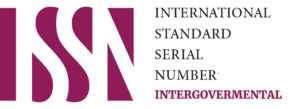ABSTRACT
This article explores the involvement of celebrities in diplomatic environment as celebrity diplomats. Using George Clooney as an example, it argues that celebrity diplomats make essential contributions to international debates by publicizing campaigns, influencing public opinion, and intervening within diplomatic circles. It also notes that celebrity diplomacy reaches beyond traditional diplomacy because it is more transparent. However, relying on celebrities as guides in diplomatic relations is risky because celebrities are ill-equipped to solve global problems.
INTRODUCTION
Diplomacy has evolved tremendously within the past few decades. Historically, diplomacy was associated with the most elite members of society because it involves the “practice of influencing the decisions and conduct of foreign governments or organizations through dialogue, negotiation, and other nonviolent means.”[1] Diplomacy was primarily concerned with matters of peace but sometimes stretches to war—the use of force—encompassing high politics and strategic interests.[2] The main actors in diplomacy then were states and the work carried out by official government-employed diplomats. Many academics referred to this type of diplomacy as “track-one diplomacy” or “traditional diplomacy.” The term “track-one diplomacy” is essentially a process whereby communications from one government go directly to the decision-making apparatus of another.” That is, “from a state perspective, diplomacy is concerned with advising, shaping and implementing foreign policy.”[3]
Although track-one diplomacy is still relevant, it has changed considerably over the past decades in both content and form. What constitutes diplomacy today goes beyond the narrow politico-strategic conception given to the term. These changes are reflected in phrases such as ‘oil diplomacy,’ ‘resource diplomacy,’ ‘knowledge diplomacy,’ ‘global governance,’ ‘transition diplomacy,’ and celebrity diplomacy-which is the main subject of this article. These changes in the nature of diplomacy show that diplomacy is not anymore the preserve of foreign ministries and diplomatic service personnel but rather involves a range of actors from political diplomats, domestic ministries or agencies, international organizations, non-governmental organizations to private citizens.
The involvement of private citizens and some non-governmental and international organizations in diplomatic forums has led to the creation of track-two diplomacy, sometimes referred to as ‘citizen diplomacy’ or ‘private diplomacy.’[4] This type of diplomacy refers to the informal and unofficial intervention of private individuals in the international political process- speaking for themselves rather than for political authority.[5] Often, these private citizens are rich folks with considerable wealth and command some global recognition and respect either through their philanthropic work or in the entertainment world. Collectively, they are called celebrities in our modern culture. As Cooper notes, it is “through their activism on the world stage, that this self-selected cast of celebrities has begun to have a significant impact on policy, shaping the agenda on a range of global humanitarian issues.”[6]
Nonetheless, not all research on celebrities’ role and impact in diplomacy (celebrity diplomats) has been positive. Some researchers and commentators view their participation favorably, while others see it negatively. Regardless, this article, focuses on the role of celebrities in highlighting humanitarian tragedies in conflict zones. It argues that the involvement of this self-selected cast of stars in diplomacy is crucial in shedding light on issues that many superpower states do not have interests in (e.g., economic, security, values). In other words, celebrity diplomats make essential contributions to international debates by publicizing campaigns, influencing public opinion, and intervening within diplomatic circles.
This article is divided into five sections. First, it gives a brief introduction to the concept of celebrity diplomacy. Second, it looks at the uniqueness of celebrity diplomacy. Third, it explores the involvement of celebrities in diplomacy, focusing specifically on the work of George Clooney. Fourth, it examines the critiques of celebrity diplomacy and fifth deliberates on the future of celebrity diplomacy. As a caveat, it should be noted that the literature on celebrity politics or diplomacy is vast, and this article does not represent its totality by any means.
WHAT IS CELEBRITY DIPLOMACY?
Celebrity diplomacy is not a new concept in the diplomatic arena because celebrities have had a long association with modern world diplomacy. Many scholars consider Benjamin Franklin the first American celebrity who worked assiduously for the French Court of Louis XVI. There is also Lawrence of Arabia, who is indelibly connected to the Paris Peace Conference of 1919.[7] Though celebrities have worked in unofficial capacities and held many roles in policy advocacy, in 1962, the United Nations inducted its first celebrity into the Goodwill Ambassadors program. This move opened the way for celebrities to participate in diplomacy in an official capacity unlike ever before. So, what exactly is celebrity diplomacy, and why has it become important over the last decades.
Different scholars have a various understanding of celebrity diplomacy. According to Wheeler, celebrity diplomacy is “the employment of well-known or famous individuals to publicize international causes and to engage in foreign policy decision-making circles.”[8] Whereas for Cooper to be considered celebrity diplomats, celebrities “must enter into the official diplomatic world and operate through the matrix of complex relationships with state officials.”[9] In the literature on celebrity diplomacy, which focuses mainly on Hollywood celebrities or famous musicians such as Bono or Clooney working as UN cultural ambassadors or climate activists, the emphasis is on their “global reach in terms of problem-solving” and the ability to influence policy when taking on issues of global significance. However, this conception may not be accurate because not all the celebrities employed by international organizations have that global reach to solve a problem since most are only known in developed countries. For instance, not all conflict-stricken countries have access to Hollywood movies and therefore may not know famous film stars Westerners or Northerners are crazy about.
Marshall sees celebrities as “elevated individuals” who can epitomize “the empowerment of the people to shape the public sphere symbolically.”[10] These symbolic and affective power celebrities build with their fans attract politicians, international organizations, non-governmental organizations, and state officials to elicit their assistance. As Cooper notes, for these personalities such as Bono, Angelina Jolie, and Bill Gates to gain access to world leaders are becoming increasingly recognized if not fully understood by the international affairs community. These celebrities have placed causes such as humanitarian aid and global debt situation on the international agenda and threatened the state-centric nature of diplomacy. This fact was made clear by Cooper, who notes:
If diplomacy is wedded to everyday activity along a wide continuum and a robust and open-ended version of individual agency, the normative claims of traditional state-centric diplomacy are eroded.[11]
These stars have indeed become ascendant diplomatic actors in a global system that is open to their inclusion in ways that very few would have anticipated even a few decades ago. Furthermore, it can be argued that by simply talking about inequity or global poverty and disease in the world, celebrities have assumed a moral authority and provide credibility for political agendas. This moral authority is not earned through rigorous academic work but the complexities of their focus. Therefore, when talking about celebrity diplomacy or celebrity diplomat in this article, the reference is to both movie stars and musicians who have graced the world of diplomacy and use their fame to try and shed light on issues of global significances that many well-off countries do not care about or “have no dog in” as Carne Ross would say.[12]
UNIQUENESS OF CELEBRITY DIPLOMACY
Celebrity diplomacy is different from the insulated and secretive world of mainstream diplomacy because it is public and has entertainment and spectacle embedded in it. Its mode of operation is populist in style, with the messages usually cast in colloquial and undiplomatic language. The diplomatic platform is unique, with most of it done through interviews in a broad cross-section of new and old media sources and mass performances via staged events (e.g., Live Aid). Genuine celebrity diplomats are often outspoken, and their concerns are tied to a single cause such as debt relief, human rights, fair trade, and disease.[13] On other occasions, the focus is territorial, for instance, the crisis in Darfur, hunger and insecurity in South Sudan, and the Democratic Republic of the Congo. Unlike diplomats, many celebrities get involved in these activities without prior extensive apprenticeship. Additionally, many do not have the requisite academic or practical training in the workings of diplomacy.[14]
It is also worth noting that celebrity diplomacy comes in various forms. First, there are glamorous enthusiasts such as Angelina Jolie, Brad Pitt, George Clooney, Nicole Kidman, Richard Gere, Sean Penn, Don Cheadle, Ben Affleck, and Vanessa Redgrave, to mention a few, streaming out of Hollywood. Their activism is very diverse and can range in intensity and audience, from a subtle mention on Entertainment Tonight to a large-scale international marketing project like ONE: The Campaign to Make Poverty History or Live Aid in 1985 organized by Bob Geldof and Midge Ure to raise funds for relief of the 1983-1985 famine in Ethiopia.[15] International organizations often use this group, such as the UN as peace or goodwill ambassadors and World Vision as celebrity ambassadors.
Yet another elementary stream of celebrity diplomat matches this ability to create hype with tangible outputs and compounds the challenge for the traditional guild of diplomats. This is the materially rich and highly innovative cohort of business celebrities located in Los Angeles, Seattle, London, Omaha, Atlanta, and other places far from the geographic sites usually associated with diplomacy. This group includes corporate elites such as Bill Gates, Warren Buffet, Richard Branson, and Ted Turner, who bring innovative stature and business acumen to tackling global humanitarian issues. Through their foundations, such as the Bill and Melinda Gates Foundation, their diplomatic platform involves generous donations to solve a worthy cause, for instance, poverty, disease, and inequity around the world.
Furthermore, there exists another group of celebrities composed mainly of athletes who use their popularity in sports to campaign to raise awareness or funds and be the face of an international or non-governmental organization. This group is usually diverse in representation, with members being appointed based on geographic location. It is here that developing countries typically get to have a person they can relate to. In short, celebrity diplomacy comes in various forms with various platforms. Some use media airtime to speak about a humanitarian issue and fundraise, while others use their deep riches and wealth to influence global policy. Celebrity diplomacy’s platform is unique and unconventional, and its appeal is far-reaching.
CELEBRITIES AND HUMANITARIAN CRISES
Over the last couple of decades, celebrities have increased involvement in the political process by shedding light on humanitarian crises; but how far do stars influence outcomes? Celebrities have so far assumed a moral authority and provide credibility for political agendas. They have done this by using various media platforms to carry out their diplomatic message or awareness campaigns. As noted earlier, some examples of these events include Live Aid, Live-8, and the numerous charities in telethons. Furthermore, they have been employed as the United Nations Children’s Fund (UNICEF) Goodwill Ambassadors or peace ambassadors by United Nations High Commissioner for Refugees (UNHCR)-the UN refugee agency.
Additionally, non-governmental organizations (NGOs), such as the Red Cross, Oxfam, and Save the Children, have been represented by celebrity advocates. Cooper suggests that celebrity diplomats make essential contributions to ongoing international debates. It is worth noting that these developments have been traced back to Bob Geldof’s Feed the World and Live Aid initiatives, which were forged in the mid-1980.[16] Subsequently, many fundraising campaigns led by celebrities have emerged concerning telethons such as Comic and Sports Relief, and thus celebrity diplomacy has been institutionalized.
This article focuses on the work of George Clooney. Apart from being a Hollywood movie star and celebrity, Mr. Clooney came into the diplomatic spotlight after traveling to Darfur to witness what was happening to the Darfurians. The Darfurians were being systematically murdered by both the government of President Omar Hassan Al Bashir and the Janjaweed militia, and many fled to refugee camps. Many more women and men were raped. Additionally, many villages were torched and destroyed, yet the world and, more importantly, the superpowers remain primarily silent and unmoved.
The UN, humanitarian groups, and various non-governmental organizations tried in vain to bring the situation to the attention of the world leaders. However, they were able to get the attention of Mr. Clooney. He used his celebrity status to forcefully talk about the humanitarian crisis in the Darfur region of Sudan. Gradually his message permeated into the society, and consciousness about the issue started developing in the public minds, and many became aware of what was happening. Suddenly, a coalition called “Save Darfur Coalition” was formed, and rallies were being held by folks in America and globally to stop the violence in Darfur.[17] In September 2004, soon after the formation of Save Darfur, Secretary of State Colin Powell testified before the Senate Foreign Relations Committee that “genocide is being committed in Darfur and the government of Sudan and the Janjaweed militia bear full responsibility.[18]
This announcement, according to Hamilton and Hazlett, proved to be an essential turning point in the Darfur advocacy movement in that it “elevated Darfur above other atrocities with high death tolls, seemingly highlighting it as a crisis most deserving of attention.”[19] Furthermore, it stirred several college students in the US to launch their campaigns, such as Students Take Action Now: Darfur (STAND), started by a handful of Georgetown University students who viewed this as an extra-curricular activity for the fall semester.[20] According to Haeri, the activism reached a point where she notes:
Darfur became the cause de rigueur of the MTV generation—the TV network even launched a campaign to promote activism for Darfur. This was followed by “Not on our Watch” Darfur wristbands and the “Million Voices for Darfur” postcard campaign to send one million postcards to President Bush asking for action in Darfur, along with a continuous stream of campaigns, such as the recent “Dollars for Darfur” national school challenge, designed to keep Darfur in the forefront of the American psyche.[21]
Although the plight of the Darfurians has not changed, however, their situation is now known globally, and many countries, especially the US and EU, have modified their foreign policies and renewed targeted arms and economic sanctions towards the government of former Sudanese president Omar Al Bashir; all thanks to the work of Mr. Clooney. Nevertheless, scholars like Cooper argue that the full extent of Clooney’s access only came due to his close personal interaction with the celebrity-friendly Obama administration, an entry that is often extremely difficult for NGOs to get. This easy access to the most influential people in the US enabled Mr. Clooney to hold “meetings with Vice President Biden and President Obama, and from the White House lawn, was able to speak live to Larry King about the Darfur crisis and the need for a special representative to be appointed by the US.”[22] That talk spurred the US to rethink its policies towards Sudan. A special representative, a retired Air Force General Jonathan Scott Gration, was sent by President Barack Obama to Sudan to see firsthand what was going on in Darfur.[23]
In addition to this direct frontline activism, Mr. Clooney is also the founder of – along with other Hollywood notables Don Cheadle, Matt Damon, Brad Pitt, David Pressman, and Jerry Weintraub – “Not On Our Watch (NOOW),” a charity organization that encourages governing bodies to take meaningful, immediate action to focus global attention and resources towards putting an end to mass atrocities around the world.[24] Furthermore, they have also helped co-found “The Sentry” in 2016, along with the Enough Project – in collaboration with John Prendergast. However, NOOW has merged into The Sentry, officially changing NOOW’s name to “The Sentry” to reflect the organization’s mission and goals. The Sentry is “an investigative and policy team that follows the dirty money connected to African war criminals and transnational war profiteers and seeks to shut those benefiting from violence out of the international financial system.”[25] So far, it has published reports that have highlighted corruption in conflict zones spanning Sudan, South Sudan, the Democratic Republic of Congo, and the Central African Republic with devastating effects. Many recent people involved in corruption ring and war crimes, in South Sudan especially, have been sanctioned by both the US and EU, respectively. The government of South Sudan itself got sanctioned by the UN Security Council in 2015 – arms embargo, due to the ongoing conflict/war in the country, and that sanction has since been renewed every year.
In short, Clooney’s activism has contributed massively to bringing to global attention issues that are sometimes considered unimportant to many developed countries’ foreign policies. Due to the work of these celebrities, many cases that were deemed to be insignificant to many folks in the developed world have become vital as they are fed with this reality daily through the media. Of course, many international organizations have seized this opportunity and have enlightened the public about issues such as debt relief, human rights, fair trade, disease, and environmental sustainability. Thus, celebrities have become indispensable members of the diplomatic arena. However, sometimes one wonders what would have happened had celebrity diplomats gotten involved during the genocide in Rwanda? Would the superpowers had intervened, or would they have just kept silent and reasoned like the Germans who felt that the killings were inevitable and impossible to prevent because “there’s just not enough room for all of them in that little country and they must kill each other like rats in a cage.”[26]
CRITICISM OF CELEBRITY DIPLOMACY
Over the last few decades, celebrities have increasingly used their star power to help draw the world’s attention to international issues such as poverty, debt eradication, and pandemic diseases. Yet, there are many criticisms directed towards celebrity diplomats, which “moved in consequence from their superficial qualities to the implications of their apparent ascendency.”[27] According to Cooper, this is especially true when some definitional clarity is provided. For instance, if being recognized as a celebrity diplomat means having some degree of global reach, not just advocating on a single issue, and having contact with state officials, the individual stars accorded this status is appreciably narrowed.[28]
Furthermore, many scholars and critics argue that celebrity diplomats are involved in advocacy for their interests, and they tend to gain significantly from their participation in celebrity diplomacy. This point was stressed by Cooper, who states that:
Among other things, their [celebrity] diplomatic role offers them the opportunity to break away from the trivialities so typical of their industry. They are given the chance to lend their voice, stand for something meaningful, and affect real change in the world. On top of their invitations to the Oscars or the Grammy Awards, events like the World Economic Forum (WEF) or the Live 8 concert might be added to their social calendar.[29]
Similarly, some scholars see the benefits celebrity diplomats get through their attachment to either the United Nations International Children Education Fund (UNICEF) or the United Nations High Commission for Refugees (UNHCR) as goodwill or peace ambassadors. These links are seen as providing Hollywood celebrity diplomats with comparative advantages in credibility and their ability to expand their networks.[30] The fact that they have access to the UN blue diplomatic passports and are supported by top-tier UN officials all play to their popularity and self-gained. Hence, recently when a Hollywood star’s career stalls, they are often encouraged by selfish-minded individuals to join activism and support a cause such as a fight against global poverty so that they can get some media attention and resurrect their career.
Furthermore, the criticism is made that this cluster of celebrity diplomats are North-centric actors. Although this is almost uniformly true, “some individuals such as singers Youssou N’Dour and Wyclef Jean and popular Uruguayan actor Osvaldo Laport have broken through in terms of global reach.”[31] Nevertheless, it should be noted that celebrity diplomacy “will only reach representational authenticity when more stars from the global South are elevated to the same stature as Bono and Angelina Jolie.”[32] Otherwise, it would be like the white savior complex- a white person who acts to help non-white people, but in a context that can be perceived as self-serving, which has afflicted many foreign aid initiatives. The good news is that the world of sports has probably opened up diversity in celebrity diplomacy by using sports figures who have risen from poverty to celebrity statuses such as Neymar from Brazil, Messi from Argentina, and a few African stars like Salah from Egypt to advocate about topical issues such as global poverty.
Moreover, although celebrity diplomats are lauded for drawing extensive media attention and building popular support, they are often derided to promote superficial and misguided interventions across borders. According to Richey and Budabin, celebrity politics is an elite politics and is liable to undemocratic agenda-setting, which includes supporting the interests of Western, typically the business, elites, “while limiting the participation of the “others” they are supposed to be “helping” with their “do-gooding.”[33] In other words, celebrity capital of media coverage often results not in the notion of solidarity with their stakeholders but “typically demonstrates “power over” the “others” in the Global South within the changing dynamics of North-South relations.”[34] Thus, celebrities are not different from “other elite actors in international affairs: converting their capital into economic, social, and political resources that transform the traditional practices of transnational politics without disrupting power relations.”[35]
Another severe criticism of celebrity diplomats is that they do not have the sound academic grounding to be regarded as experts in the field. However, few scholars argue that celebrities are experts, and this expertise is gained from celebrity junkets as Abrahamsen notes:
The celebrity is a different kind of expert, whose knowledge is not derived from numbers, deduction, or semi-structured interviews, but from ‘feeling the pain’ of the poor and from offering an emotional connection to the subjects of development.[36]
Similarly, other scholars also contend that in many instances, claims made based on empathy with the audience may be read in terms of intellectual expertise, as may claims made based on experience.[37]Therefore, relying on celebrities as guides in diplomatic relations is risky because celebrities are ill-equipped to solve global problems. They may help raise awareness of global suffering, but their campaigns may be counterproductive and could underutilize stakeholders’ potentials.[38]In short, celebrity diplomacy has often faced criticism from various points of view, and although some of these criticisms are to be taken seriously from academic and moral grounds, yet the fact that it has contributed to placing humanitarian and environmental issues on the global agenda has to also to be appreciated and recognized.
THE FUTURE OF CELEBRITY DIPLOMACY
Many scholars and critics of celebrity diplomacy often condemn its reality on superficiality and some of the points made earlier; however, celebrity diplomacy is rationalized and lauded by its promoters for its symbolic and instrumental use as a mediation tool.[39] Many people view celebrities as go-betweens for society at the mass level and institutional mechanisms that remain biased toward the elite. Furthermore, celebrities provide a different script about how diplomacy is practiced that cannot at all be dismissed as woolly-headed or utopian. Celebrities not only blur but effectively break down the barriers between domestic and international politics. As cooper notes:
With their defined sense of purpose, ease of access to world leaders, and truly global reach, a growing list of celebrities are not only blurring but effectively breaking down traditional barriers within the diplomatic establishment.[40]
Another aspect that indicates the sustainability of celebrity diplomacy is the diversification of celebrity diplomats through the use of sports figures from the West and the developing world. For example, Dennis Rodman’s “basketball diplomacy” with North Korea and Didier Drogba and how he used the power of football (soccer) to helped halt the civil war in Ivory Coast are good examples that celebrity diplomacy is likely to persist in our current political environment. It should also be realistically acknowledged that celebrity diplomats certainly do not provide the answers to an array of global problems on their plan. Still, their combination of buzz and bite “provides them with enormous capacity to redefine both the priorities and mechanisms of diplomacy.”[41] In short, celebrity diplomacy is here to stay not as an alternative to traditional diplomacy but as an addition to it. Public diplomats advocating is one of today’s communication strategies to connect and affect the target audience.
CONCLUSION
Celebrity diplomacy is not a new concept but an old idea that has gained popularity over the last couple of decades. Celebrity diplomats have made significant contributions in the international diplomatic arena by publicizing campaigns, influencing public opinion, and intervening within diplomatic circles. Additionally, celebrity diplomacy reaches beyond traditional diplomacy because it is more transparent. However, celebrity diplomacy is not free from criticisms and has been accused of superficiality, among many other things.
Furthermore, relying on celebrities as guides in diplomatic relations is risky because celebrities are ill-equipped to solve global problems. Nevertheless, celebrity diplomats are here to stay and have become a growing fixture in diplomatic relations and will continue to shape international relations and policy decisions. Indeed, a new ‘currency’ of public diplomacy has occurred in which emotion and rhetoric help shape the outcome of international affairs.
REFERENCES
- Geoff R. Berridge, Diplomacy: Theory and Practice (Houndmills, UK; New York: Palgrave, 2002), 1.
- P. Barston, Modern Diplomacy (New York: Pearson Longman, 2006), 1.
- Jean-Robert Leguey-Feilleux, The Dynamics of Diplomacy (Boulder, CO: Lynne Rienner Publishers, 2009), 331-345.
- Joseph Montville, Track Two Diplomacy: The Arrow and the Olive Branch: A Case for Track Two Diplomacy. In, V. D. Volkan M.D., J. Montville, & D. A. Julius (Eds.), The Psychodynamics of International Relations: Vol. 2. Unofficial diplomacy at work (Massachusetts: Lexington Books.1991), 161.
- Andrew F. Cooper, “Beyond Hollywood and the Boardroom: Celebrity Diplomacy,” Georgetown Journal of International Affairs (2007): 125.
- Laura D. Young, “Celebrity Diplomacy,” The Encyclopedia of Diplomacy (2018), 1.
- Mark Wheeler, ” Celebrity Diplomacy,” In Constantinou, Costas M., Pauline Kerr, and Paul Sharp. The SAGE Handbook of Diplomacy, (London: SAGE Publications Ltd, 2016), 530.
- Cooper, “Beyond Hollywood and the Boardroom.” 7.
- David P. Marshall, Celebrity and Power: Fame in Contemporary Culture (U of Minnesota Press, 2014), 3-7.
- Andrew F. Cooper, and Louise Frechette, “Celebrity diplomacy,” (Routledge, 2015), 2.
- Carne Ross, Independent Diplomat: Dispatches from an Unaccountable Elite (Ithaca, New York: Cornell University Press, 2007), 115, 120, 126.
- Cooper, “Beyond Hollywood and the Boardroom,” 126.
- See (Cooper, “Beyond Hollywood and the Boardroom: Celebrity Diplomacy.” Georgetown Journal of International Affairs 8, no. 2 (2007): 125-32; Frances Westley, “Bob Geldof and live aid: the affective side of global social innovation,” Human Relations 44, no. 10 (1991): 1011-1036; Gill, Peter Gill. Famine and Foreigners: Ethiopia since Live Aid. Oxford University Press, 2010; Louise Davis, “Feeding the World a Line?: Celebrity Activism and Ethical Consumer Practices from Live Aid to Product Red,” Nordic Journal of English Studies 9, no. 3 (2010): 89-118).
- Andrew F. Cooper, “Celebrity Diplomacy’ (Boulder, London: Paradigm), 113-114.
- Chuck Neubauer, “Darfur Coalition, George Clooney, Sen Barack Obama, and Elie Wiesel. Thousands Rally to Stop the Violence in Darfur.” The Los Angeles Times, May 1 (2006).
- Glenn Kessler and Colum Lynch, “US Calls Killings in Sudan Genocide,” The Washington Post, September 10, 2004, A01.
- Rebecca Hamilton and Chad Hazlett, “Not on our Watch”: The Emergence of the American Movement for Darfur,” War in Darfur and the Search for Peace, Alex de Waal, ed. (Cambridge, MA: Harvard University Global Initiative, 2007), 337-366, at 341.
- Hamilton and Hazlett, “Not on our Watch,” 345.
- Medina Haeri, “Saving Darfur: Does Advocacy Help or Hinder Conflict Resolution?” The Fletcher Journal of Human Security 23 (2008): 36.
- Andrew F. Cooper, “Taking Celebrity Diplomacy Seriously in International Relations,” E–International Relations (2009), 1.
- David Alexander, “Obama names Gration as Special Envoy to Sudan,” Reuters, March 18, 2009, https://www.reuters.com/article/idUSN18343231
- Cooper, “Taknig Celebrity Diplomacy Seriously,” 2.
- The Sentry, “War Crimes Shouldn’t Pay,” https://thesentry.org/about/
- Ross, “Independent Diplomat,” 33.
- Cooper, “Taking Celebrity Diplomacy Seriously,” 6.
- Lisa Ann Richey and Alexandra Budabin, “Celebrities in International Affairs,” In Oxford Handbooks Online: Scholarly Research Reviews, (Oxford University Press, 2016), 1.
- Rita Abrahamsen, “Africa in a Global Political Economy of Symbolic Goods.” Review of African Political Economy 39, no. 131 (2012), 141.
- Dan Brockington, “The Production and Performance of Authenticity: The Work of Celebrity in International Development.” In symposium Capitalism, Democracy, and Celebrity Advocacy (University of Manchester, 2012), 20.
- Heribert Dieter, and Rajiv Kumar, “The Downside of Celebrity Diplomacy: The Neglected Complexity of Development,” Global Governance: A Review of Multilateralism and International Organizations 14, no. 3 (2008), 264.
- Cooper, “Taking Celebrity Diplomacy Seriously,” 6.
- Cooper, “Beyond Hollywood and the Boardroom: Celebrity Diplomacy.” Georgetown Journal of International Affairs 8, no. 2 (2007), 131.
Publisher information: The Intergovernmental Research and Policy Journal (IRPJ) is a unique interdisciplinary peer-reviewed and open access Journal. It operates under the authority of the only global and treaty-based intergovernmental university in the world (EUCLID), with other intergovernmental organizations in mind. Currently, there are more than 17,000 universities globally, but less than 15 are multilateral institutions, EUCLID, as IRPJ’s sponsor, is the only global and multi-disciplinary UN-registered treaty-based institution.
IRPJ authors can be assured that their research will be widely visible on account of the trusted Internet visibility of its “.int” domain which virtually guarantees first page results on matching keywords (.int domains are only assigned by IANA to vetted treaty-based organizations and are recognized as trusted authorities by search engines). In addition to its “.int” domain, IRPJ is published under an approved ISSN for intergovernmental organizations (“international publisher”) status (also used by United Nations, World Bank, European Space Agency, etc.).
IRPJ offers:
- United Nations Treaty reference on your published article (PDF).
- “Efficiency” driven and “author-focused” workflow
- Operates the very novel author-centric metric of “Journal Efficiency Factor”
- Minimal processing fee with the possibility of waiver
- Dedicated editors to work with graduate and doctoral students
- Continuous publication i.e., publication of articles immediately upon acceptance
- The expected time frame from submission to publication is up to 40 calendar days
- Broad thematic categories
- Every published article will receive a DOI from Crossref and is archived by CLOCKSS.












